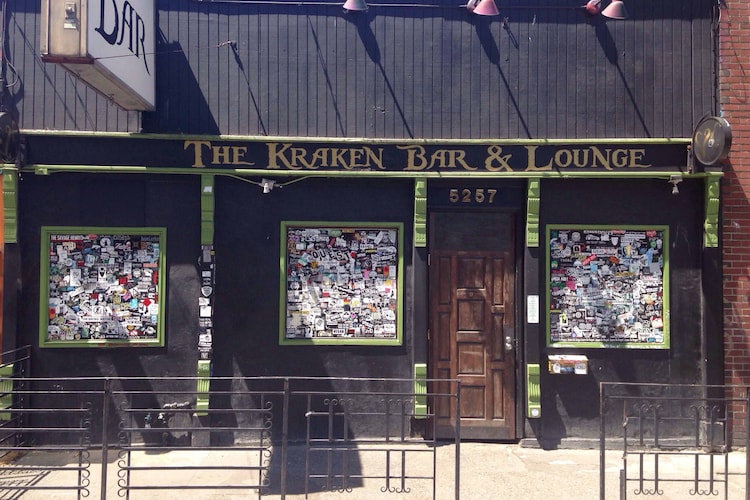The Seattle Kraken hockey team announced it would change the name of its restaurant after being sued by a local bar. Seattle Hockey Partners LLC (“the Kraken Team”) announced that they would no longer name their new restaurant “The Kraken Bar & Lounge” after a trademark infringement lawsuit was filed by the Kraken Bar in Seattle.
Interestingly, the Kraken Bar had never federally registered its name as a trademark. This case presents an example of how common law trademarks can be used by businesses with an established reputation and identity to protect their rights.
Background
According to the complaint, Seattle’s Kraken Bar was established in 2011. The self-proclaimed “dive bar” has been in continuous operation since that time, catering to rock, punk, and metal music lovers with frequent live performances.
The Kraken Bar is well known in the area. The complaint notes that the Kraken Bar is consistently mentioned by local media as one of Seattle’s top bars and music venues and is consistently rated highly by patrons on online review outlets such as Yelp. The Kraken Bar also sells merchandise and maintains a social media presence, advertising its services on Facebook, Pinterest, and Instagram with #KRAKENSEATTLE, Kraken Bar, and The Kraken Bar and Lounge.
On July 23, 2020 it was revealed that Seattle’s new Hockey Team would be named “The Seattle Kraken.” Shortly thereafter, on April 8, 2020 the Kraken Team announced that it was opening “The Kraken Bar & Grill” — a 4,600 square-foot restaurant configured to seat 300 people — about three miles away from the Kraken Bar.
The Kraken Team’s announcement precipitated the present suit. On April 22, 2021 the Kraken Bar sued the Kraken Team alleging trademark infringement in a Washington state court. On April 24, the Kraken Team announced it would change the name of its new restaurant.
Interestingly, the Kraken Bar’s complaint does not cite any federally registered trademarks. Instead, the suit relies on a theory of common law trademark infringement. Common law trademarks are an important and valuable form of protection, but these marks differ from federally registered trademarks in a few important ways.
Common Law vs. Federal Trademarks
All trademarks serve as source identifiers that allow businesses to protect their branding and help assure consumers of the source of the products they purchase. Many trademarks are registered with the Federal Government at the United States Patent & Trademark Office (“USPTO”). These trademarks are known as federally registered trademarks and offer the strongest form of protection.
Holders of federally registered trademarks enjoy nationwide protection and can prevent subsequent users from adopting or registering a confusingly similar mark anywhere in the country. Further, holders of federally registered trademarks are entitled to a legal presumption that their trademark is valid and enforceable. After 5 years, federally registered marks can become “incontestable” – limiting the available grounds for challenging the validity of the mark. It is also worth noting that registered trademark owners may file suit in federal court and may be entitled to certain enhanced statutory damages.
Although federally registered trademarks offer the strongest form of protection, some basic rights can be established through legitimate use of a mark in commerce even without registering the mark. These marks are known as common law trademarks and come with some significant limitations. For instance, unlike federally registered trademarks, holders of common law trademarks typically may only exercise their rights within the geographic area that the mark is actually used. Furthermore, holders of common law trademarks are not entitled to a presumption that their trademark is valid and enforceable, which can make it more difficult for an aggrieved business to establish a legitimate case. For instance, in the present Kraken suit, a large portion of the complaint is dedicated to detailing the history of the Kraken Bar’s marketing activities in an attempt to establish the validity of the asserted common law rights.
Analysis
This case presents a good example of how common law trademark rights can be leveraged to protect a business with an established reputation and identity. The Kraken Bar asserts a long history of using the mark “Kraken” in association with its bar in the Seattle area. The owners point to their history of social media marketing, positive online reviews, as well as being consistently mentioned as one of the top bars in the area by local media to establish their common law rights to the mark “Kraken” in connection with restaurant and bar services.
In this case, the Kraken Bar was likely successful in getting the Kraken Team to change the name of the planned restaurant due to the similarity of the services to be offered, the similarity of the proposed name, and the geographic proximity of the new restaurant. However, the success here may be somewhat limited. It is worth noting that the Kraken Bar would face a more difficult challenge if the proposed restaurant were to be built outside of Seattle. Further, it may be difficult for the Kraken Bar to prevent the Kraken Team from using Kraken branding in other settings aside from restaurants and bars where the Kraken bar has a demonstrated history of legitimate use.
Going forward, it would be wise for the Kraken Bar to register its name as a trademark with the USPTO to help deter future actors from registering confusingly similar marks and to expand the geographic limitations of their protection. Furthermore, although the Kraken Bar was seemingly successful in defending its rights in this case, other businesses may not be so lucky. The Kraken Bar made significant note of its cherished reputation within the community within the complaint. Newer businesses without an established brand and reputation would likely be unable to achieve the same result without a federally registered trademark.
Citations
NHL’s Kraken Sued by Seattle’s Kraken Lounge Over Planned Northgate Restaurant Name, Seattle Times
About the Author

Scott Seeley
Scott is an intellectual property lawyer and registered patent attorney. Scott’s intellectual property practice includes patent prosecution, trademark registration, and post-grant proceedings before the Patent Trial and Appeal Board, such as inter partes review. Scott has extensive experience preparing infringement opinions and conducting validity analyses of competitor portfolios.
Do you have questions about Intellectual Property, Patent Prosecution, or Trademarks? Review some of our services here.
